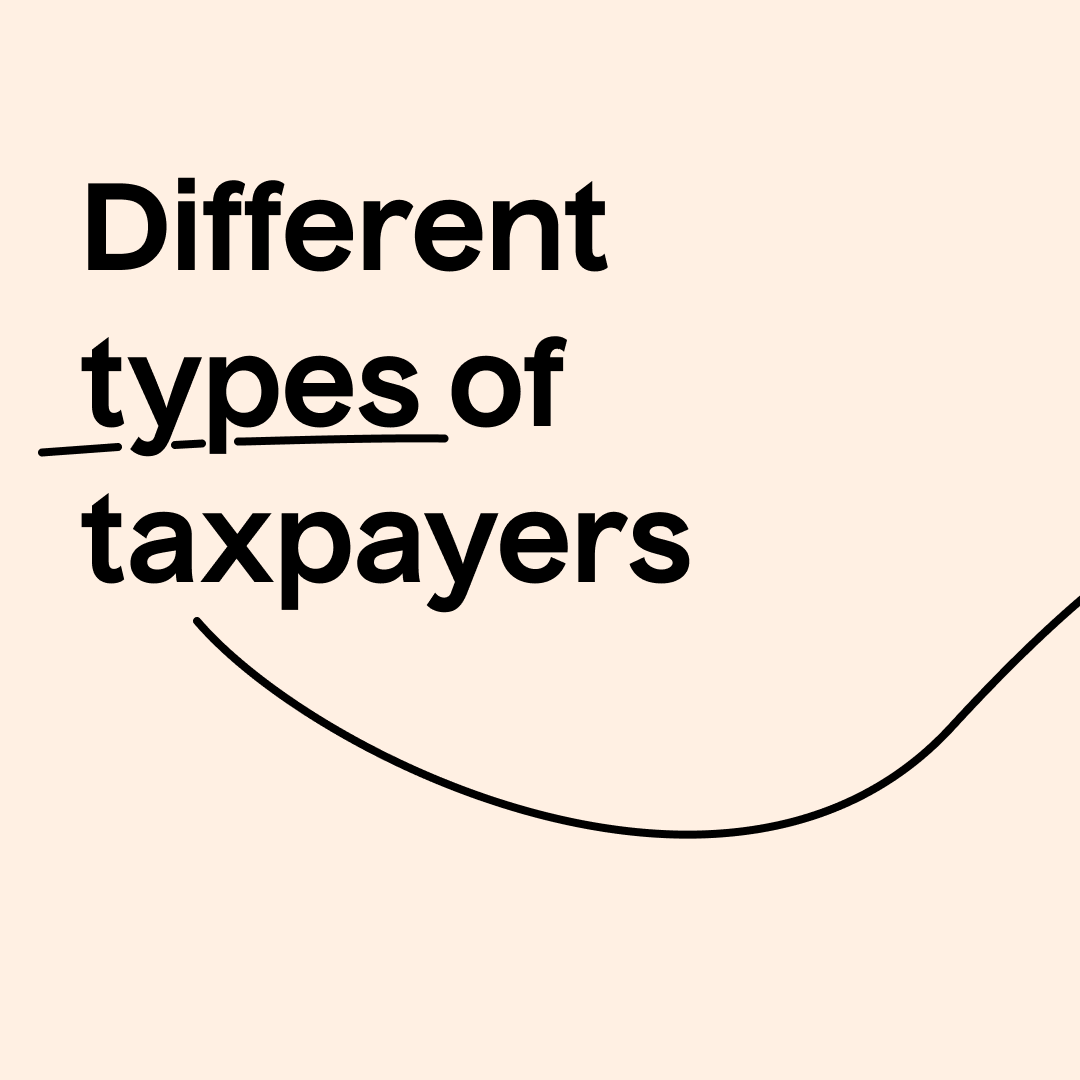A taxpayer is a person or a business who is supposed to pay taxes to the government.
There are lots of different types of taxpayer. Generally, you should know whether you are or not. But if you don’t, here are some qualities to look out for:
- You’re a tax resident of a country (UK or otherwise)
- You earn a regular income
- You’re able to use the NHS or other state provided benefits
- You reside in the UK for 183 days or more every year
- You have a National Insurance number
Sometimes you can be a taxpayer even if you’re not a tax resident – it really depends on the Double Taxation Agreements between the UK and your home country.
Click the picture below to check out different types of people who are liable to pay tax on their earnings in the UK.

How does a UK taxpayer pay tax?
In the UK, there are three ways to pay tax:
- Deducted at source: this means that your tax is deducted automatically and forwarded to HMRC. An example of this is when your employer deducts your Income Tax and National Insurance through PAYE (Pay As You Earn) and then sends it to HMRC
- Calculated and paid by you: when you’re self-employed, you need to file a Self Assessment tax return. You calculate your own taxable profit (earnings minus expenses and allowances), and then pay HMRC directly
- You usually pay in one go but there are options to split the payments
- If you’re employed and self-employed, you can pay all of the tax you owe via your tax code
- A flat tax: Council Tax is an example of this, which is calculated based on your residence and is paid manually by you

